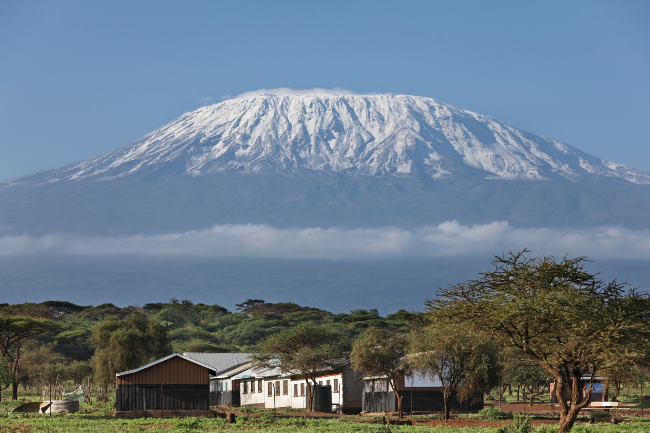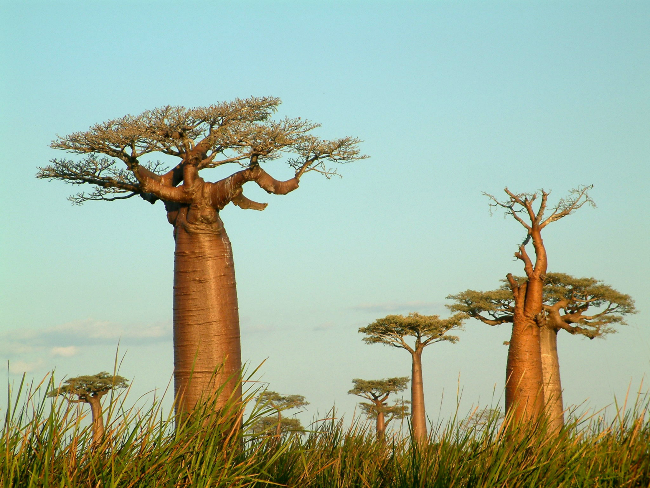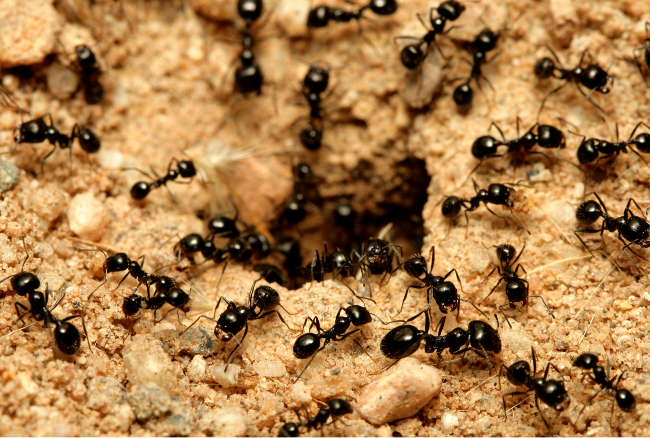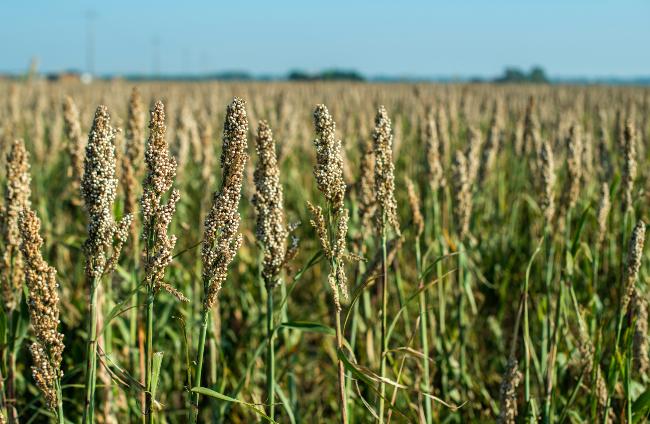When you listen to creation, do you hear a chorus of praise?
In an earlier post, I shared The Canticle of the Creatures, by St. Francis of Assisi. Today, I share a traditional African prayer which can be found in An African Prayer Book by Desmond Tutu.
An African Canticle
All you big things, bless the Lord
Mount Kilimanjaro and Lake Victoria,

The Rift Valley and the Serengeti Plain
Fat baobabs and shady mango trees,

All eucalyptus and tamarind trees,
Bless the Lord.
Praise and extol Him for ever and ever.
All you tiny things, bless the Lord.
Busy black ants and hopping fleas,

Wriggling tadpoles and mosquito larvae,
Flying locusts and water drops,
Pollen dust and tsetse flies,
Millet seeds and dried dagaa,

Bless the Lord.
Praise and extol Him for ever and ever.
Every Part of Creation Praises God
This prayer is a good reminder that everything, no matter its size, is capable of praising the Lord—and is called upon to do so. Big things rooted in the land, towering above us that we have to crane our necks to see the top of. Microscopic things living in homes too small for us to see and too tiny for us to hold.
Psalm 150:6 says, “Let everything that has breath praise the Lord.” If a creature wasn't capable of praising God, I do not think it would be commanded to do so. And to expand it into the realm of the non-breathing creation, we also have Psalm 148 and 96, which say that the heavenly hosts, sun, moon, lighting hail, snow, winds, mountains, hills—all things are called upon to praise God. The list of created things that are called upon to praise God is all-inclusive.
As I’ve written before, although we often picture humans as the center of everything, we aren’t. We are not the channel through which everything of meaning or significance must be funneled. If I don't understand how fat baobabs and the Serengeti Plain can praise God, that doesn’t mean it doesn’t happen; just because I can’t translate the language of the hopping flea and the pollen seed, that doesn’t mean God doesn't hear its praise. The praise of a particular creature in response to the blessings of God is communication between that creature and God. If I hear it, it is as a witness, not as a translator. The creator is certainly more capable of understanding the language of the creature he has made than I am, as merely another creature.
Although I am not necessary to the creature who is doing the praising, my recognition of that praise is beneficial to me, as it is when I hear the testimony of a new believer at a baptism. Discovering the good ways that God takes care of his creatures turns me toward him in appreciation and awe. If we were able to hear and understand the praise of all creatures in this world, how beautiful and diverse the chorus of those voices would be! Revelation 5:13 describes this phenomenon in this way:
Then I heard every creature in heaven and on earth and under the earth and on the sea, and all that is in them, saying: “To him who sits on the throne and to the Lamb be praise and honor and glory and power, for ever and ever!”
According to scripture, praise emanates from sources all around us and, although I don’t know the words that the birds sing, I can hear the chorus. If I can recognize the beauty and the praise of a human chorus sung in a different language from mine, perhaps, with training, I can also learn to recognize the beauty and praise of the non-human world even without understanding the words (or non-words). If I can't recognize the beauty and praise of a human chorus when it looks and sounds different from me, then perhaps I first need to start there.
How can I learn to recognize the praise all around me? I believe that if I expect and look for praise around me, I am more able to hear and see it as such. Accepting that God has given his creation the ability to praise him is an important first step in learning to perceive it. Being present with other people unlike ourselves and other creatures unlike ourselves, paying attention to their experience and their responses to God helps us to see things we might not otherwise see. If a person entirely different from me expresses their praise in words unfamiliar to me, am I able to find the beauty in their experience and their expression of praise? If I see the wiggling tadpole growing into a frog, is the growth of that tadpole, responding to the creator's care for it, a form of nonverbal praise? If I can begin to see these as praise, I have taken a step in the right direction. Perhaps when the renewal of creation is complete, we will be able to interpret the praise we can't yet even recognize as praise.
One hurdle to overcome is our human tendency to equate the value of something with whether it is useful or harmful to us personally or even as a species. Can a tsetse fly, a creature which has brought devastation to such a large area of sub-Saharan Africa, praise God? This canticle and the Bible itself suggest that everything that is part of creation is capable of praising God, so my answer must be that, yes, even though it doesn't even pollinate flowers or fruits that are useful to humans and is a dangerous pest to livestock and humans, it is valued by God and is in some way able to praise him. I don't know what form that takes, but I can still acknowledge it as true even if I don't know the language of the tsetse fly's praise.
When I acknowledge that other created things have the ability to bring praise to God, it can enable me to esteem them more accurately and if I open myself up to the possibility that all creatures can respond to their creator with praise, I may cultivate the ability to recognize non-human praise more readily. There might be something in a coyote's howl that can point me to the goodness of God, especially if I think in terms of the whole ecosystem instead of only my small niche within it. When a fellow creature does what it was meant to do, its very act of being and doing praises God. All around me, praise rises and invites me to recognize what a good God all of creation has.
All you big things, bless the Lord.
All you tiny things, bless the Lord.
Finally, if all these other parts of creation are called to bless the Lord, I, too have a personal responsibility to praise and extol him. With whatever life and words I am given, that is my task as part of his creation. When I join my praise with the voices of other creatures around me, it is a preview of the chorus of praise that will last forever and ever.
An Invitation to our Readers: Take a walk and bring along a camera, on the lookout for something that especially prompts you to praise the Creator—it could be anything from an intricate pattern in nature, a person being kind, or something that is just plain beautiful. Send the picture to my email address below (along with a sentence or two saying why it strikes you) and, in a couple of weeks, we'll share those pictures and comments in a Thursday Art of Creation post. I look forward to seeing what art of creation you notice when you're out walking!
Louise
You can contact me directly at info@circlewood.online.